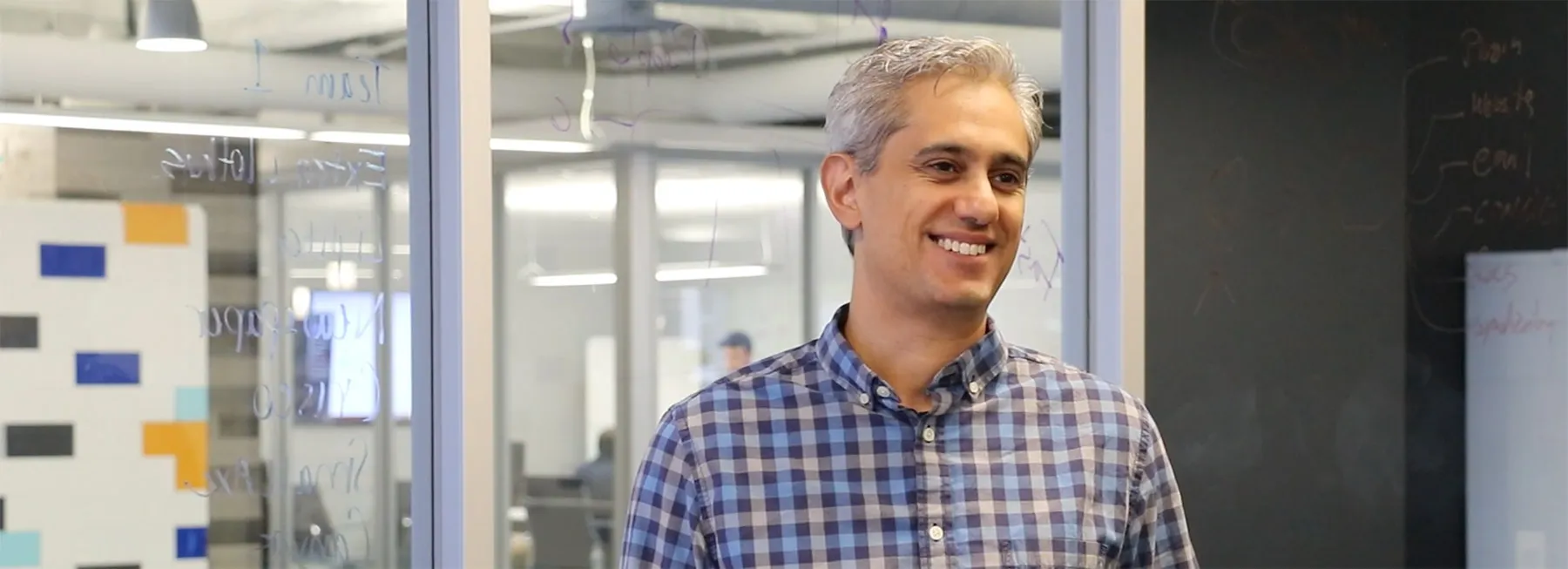

Buildout’s co-founder and CEO Vishu Ramanathan marked the launch of the 2018 DNA of #CRE Reports by sitting down for an interview and offering his personal thoughts on the results, where tech in commercial real estate is today, and where he thinks it’s headed.
What was the conversation around CRE tech like when Buildout was first getting started?
Vishu: Back in 2010, the message was, “tech…it exists!” And that was barely true because nothing that existed back then was built for commercial real estate and had largely been rejected by the industry. This story had emerged about brokers being reluctant to embrace tech but we saw that wasn’t true—brokers are just too driven and savvy to waste their time on tools not suited for their needs. Tech then wasn’t built for them. It was up to us to show them how tech built specifically for brokers could be useful and overcome any resistance they had.
How would you describe the current state of CRE tech?
Vishu: It’s extremely fragmented. The fact is, a few years ago there was excitement about the potential for success in CRE tech and a ton of investment was made that resulted in a whole bunch of companies that struggled to ever get customers. Even though some of them had really great ideas, they weren’t conceived with an idea of how the market worked or what CRE professionals actually needed.
Brokerages need us to build software with an understanding of their real business problems—but then have the ability to actually make something that provides solutions. I don’t think anyone wants to move into a building that was built by software developers…and in the same way, I think you end up with much better software if it’s built by professional software developers than if it’s built by brokers.
The market got flooded with solutions to problems that didn’t exist because it wasn’t tied into the community we’re serving. That really did happen in a big way over the last few years but I think that’s settling down now and the real leaders are emerging.
“Brokerages need us to build software with an understanding of their real business problems—but then have the ability to actually make something that provides solutions.”
What’s missing from the CRE tech landscape today?
Vishu: Access to some sort of shared data platform, like an MLS, is certainly one of the first things that people start talking about. What exists isn’t in all markets and is pretty expensive.
We also see a lot of people wanting to see more integration or more of a seamless solution in their tools. Tech has gotten to the point where integration is actually a lot more straightforward—but just because you can move data around doesn’t mean you magically get a seamless, end-to-end, well-designed system. So the tech problem has been solved, but the application integration problem still exists.
In our latest DNA of #CRE survey, almost 90% of broker respondents predicted the industry will embrace tech more in 2019. How has that increase in adoption shifted the conversation for you?
Vishu: It’s vastly different! We have seen an enthusiastic embracing of technology by the brokerages who use our software and see an active impact on their business. Everywhere I go I see brokers using tech to make connections and drive their deals—even if it’s just the way they’re using their phones. Once you have a tool vastly improving the things you already do well, it’s hard not to think, “what’s next?” That’s what we’re hearing from the market: CRE is looking to the future and wanting even more.
“Once you have a tool vastly improving the things you already do well, it’s hard not to think, what’s next?”
What are the biggest hurdles for adoption today?
Vishu: It’s not that brokers don’t want to use tech, it’s that you have to successfully get it into their hands. Brokers can buy a one-off tool and use it or not but it might not be tied into their relationship to their brokerage. But if the brokerage is adopting something, how do they roll it out to everyone?
New tech can change the way the whole company is managed—but brokers are independent so you can’t guarantee they’ll use it unless you make sure it’s truly useful for everyone. A lot of software that’s designed to have the brokerage choose stuff for the broker continues to have those problems.
Our software mirrors the structure of the businesses we serve. We make something useful for the brokerage that helps with the services and branding they’re already providing for the brokers. It fits seamlessly into the way they’re already working. We’re not asking brokerages to drastically change how they do their business. We’re offering them a better way to continue their best work.